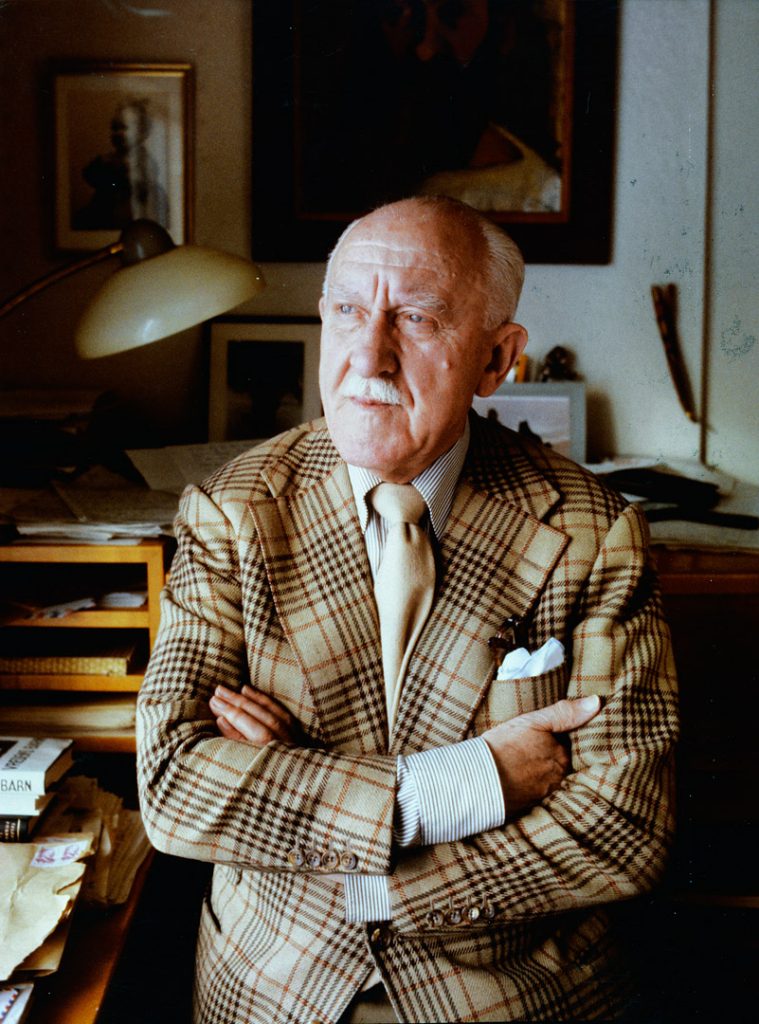

Laxness wrote of his experiences in the books Undir Helgahnúk (1924) and, more importantly, in Vefarinn mikli frá Kasmír ( The Great Weaver from Kashmir ). He became a member of a group which prayed for reversion of the Nordic countries back to Catholicism. While staying at the abbey Laxness practiced self-study, read books, and studied French, Latin, theology and philosophy. In 1923 he was baptized and confirmed in the Catholic Church, adopting the surname Laxness (after the homestead on which he was raised) and adding the name Kiljan (the Icelandic name of Irish martyr Saint Killian). In 1922, Halldór joined the Abbaye S aint- Maurice - et - S aint- Maur in Clervaux, Luxembourg where the monks followed the rules of Saint Benedict of Nursia. By the time his first novel was published ( Barn náttúrunnar, 1919), Halldór had already begun his travels on the European continent. He attended the technical school in Reykjavík from 1915 to 1916 and had an article published in the newspaper Morgunblaðið in 1916. Halldór started to read books and write stories at an early age. Halldór Guðjónsson was born in 1902 in Reykjavík, with his family moving to the Laxnes farm in nearby Mosfellssveit parish when he was three. Major influences included August Strindberg, Sigmund Freud, Knut Hamsun, Sinclair Lewis, Upton Sinclair, Bertolt Brecht and Ernest Hemingway. He wrote novels, poetry, newspaper articles, essays, plays, travelogues and short stories.

Halldór Kiljan Laxness ( Icelandic: ( listen) born Halldór Guðjónsson 23 April 1902 – 8 February 1998) was an Icelandic writer and winner of the 1955 Nobel Prize in Literature.


 0 kommentar(er)
0 kommentar(er)
